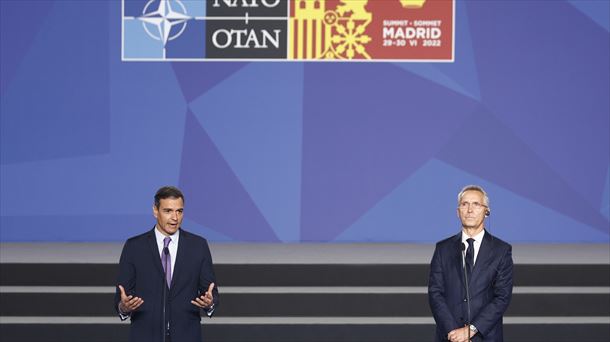The governments of Germany and France are in crisis, at the European meeting in Brussels both cook their own soup and seek success there. This is at the expense of many current problems and issues.
If things are not going so well at home, the European stage should be used. There is then intense pressure or blocking – without ifs and buts and without taking the others into account. That is, of course, contrary to the idea of the EU, but nobody cares about that in a situation like this, as Germany and France are currently demonstrating.
Is the German Chancellor part of the government?
Berlin has long been blocking the decision to ban combustion engines in new cars from 2035. At the summit, things happened as they should: although the topic was not on the agenda, it dominated the meeting of heads of state and government. The boogeyman: German Chancellor Olaf Scholz (SPD). “It is disturbing when a government suddenly backs down after initial approval,” said Latvian Prime Minister Krisjanis Karins.
Scholz himself, who, in order not to endanger the inner-German coalition, supported his Transport Minister Volker Wissing (FDP), did not exactly cut the best figure in Brussels on this point. “If I understand correctly the talks between the Commission and the federal government, then everything is on the right track,” said the German Chancellor. Mind you, the chancellor, who is head of government and sounds like an outsider.
Searching for a compromise, the rumor spreads
But Scholz’s peculiar word endowment is not the only absurdity in this deadlocked debate. In Austria, only one government party, namely the ÖVP, is against the signed compromise, the Greens stand by their word. Chancellor Karl Nehammer attracted attention at yesterday’s summit, coining a new term that he probably hopes will become an advertising hit: the “green combustion engine”.
This refers to combustion engines that are powered by synthetic fuels, the so-called e-fuels. The European Commission presented a proposal in this direction a few days ago. In any case, Commission President Ursula von der Leyen has had numerous discussions along the sidelines of the top in order to find a solution. Germany is confident, at the summit it was rumored that the Council of Transport Ministers could reach a final vote next Tuesday.
Macron wants to promote nuclear energy
Another statesman is in desperate need of success: French President Emmanuel Macron is under intense pressure in his home country because of the pension reform he pushed through alone. A victory on points in Europe would suit him like a glove and nuclear energy should be able to do that. Macron is trying by all means to push for a renaissance of nuclear energy in Europe, including financial support. His argument, which many consider incorrect: the poles are a local energy source that ensures autonomy, and they are also climate-friendly. Emmanuel Macron even wanted to enshrine a corresponding passage in the summit’s final statement, but that was prevented beforehand.
Ukraine, competition, trade and migration
Much less controversial (probably also because no resolutions were planned) were the talks on the actual topics of the summit, from Ukraine to competitiveness and migration to energy. Especially in the migration chapter, which was on the program after yesterday’s dinner, much was said and known. Chancellor Karl Nehammer welcomed Bulgarian President Rumen Radev’s praise and thanks for cooperation in border security. However, Austria’s veto against the accession of Romania and Bulgaria to Schengen is still valid.
Source: Krone
I am Ida Scott, a journalist and content author with a passion for uncovering the truth. I have been writing professionally for Today Times Live since 2020 and specialize in political news. My career began when I was just 17; I had already developed a knack for research and an eye for detail which made me stand out from my peers.



